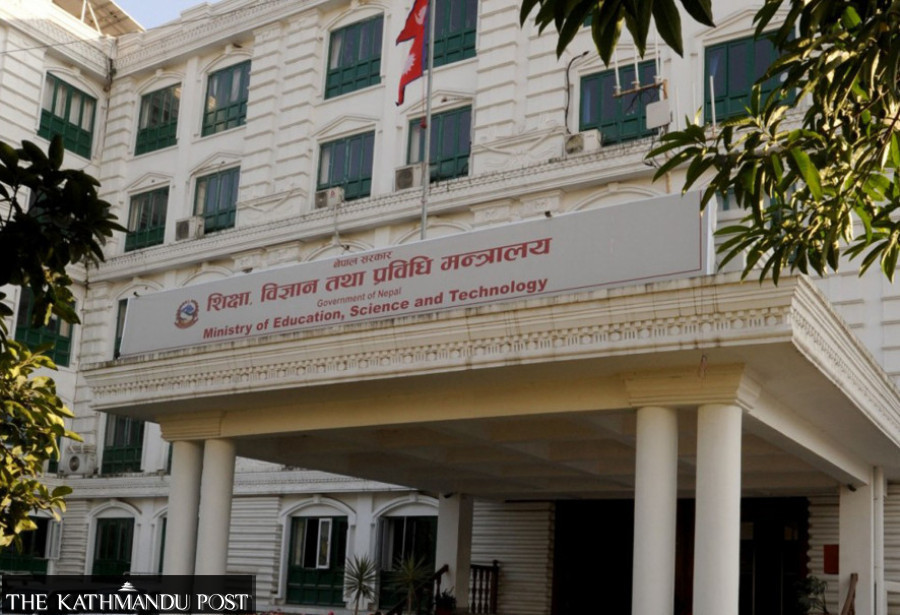Columns
On the proposed National Book Policy
Public money must support book creation through relevant, closer-to-the-creator institutions.
Pratyoush Onta
For several weeks now, the Ministry of Education, Science and Technology (MoEST) of the Government of Nepal has put out a draft text in Nepali on its website of the “National Book Policy, 2081 BS”. In the paragraph headed “Background”, the text states, “For quality education and learning, we need quality books. For the easy availability of quality books, their creation, production, distribution and storage aspects need to be strengthened and their writing, translation, editing, production, publication, printing, distribution, and sale aspects need to be developed and managed.” It adds that the Government of Nepal has drafted this policy to do all of the above.
In the same section, the text further delineates a litany of problems facing the sector. Apart from the new challenges emanating from readers spending too much time looking at various types of screens and too little time reading books, the problems listed are pretty much the same as those identified in related discussions held in the 1990s.
The policy draft text lists six objectives in very generic terms. For instance, objective three reads: “To enhance the professional capacity of sectors related to the writing, publication, preservation and promotion of books.” Under the subsequently given execution strategies, the policy draft lists three strategies that align with the above-mentioned objective three. They deal with managing the intellectual property rights of various contents, creating a national book depository/book bank and the development and diversification of how libraries are run in the country. These are further discussed in the subsequently given karyanitis.
In a section titled “The Bases for the Execution of this Policy”, it is mentioned that the MoEST will produce the necessary working procedure for resource management and related criteria and also coordinate with provincial and local governments. For the execution, monitoring and evaluation of this policy, the draft proposes creating a National Book Council under the chairmanship of the minister or state minister of the MoEST. The council’s secretariat will be the appropriate division in the same ministry. Under the sub-title “The Management of Financial Sources”, the policy draft generically states that “the necessary financial resources needed to execute this policy will be managed.”
The brief extracts given above from the 16-page “National Book Policy” draft should convince the readers that the entire text reads like a pious but generic tract, full of good intentions that are unlikely to be implemented for lack of proper identification of where the challenges lie and at what levels they need to be tackled. So, it is not clear what has prompted the process of creating this kind of draft at the moment. Given the emphasis that libraries get on it, is there some association of librarians currently behind this idea? Or perhaps some bureaucrats in the MoEST wanted to please their bosses by working on the policy draft, which, it is stated, was generated after “continuous discussions” with “pertinent stakeholders.” The stakeholders haven’t been listed in the text. As a member of a research organisation which has published 116 academic books on a broad variety of subjects in the past 23 years and promoted books through the hosting of numerous book discussions and commissioning of their reviews in two journals, we were not invited to any such discussion at the MoEST or elsewhere.
Getting it right
Those who run the federal bureaucracy don’t seem to understand (or if they do, they don’t care about) some fundamental points. First, creating another entity at the centre, namely, a National Book Council under the chairmanship of a minister in the federal MoEST, will do virtually nothing to produce better-quality books. In particular, such an entity cannot enhance the professional capacity of writers, publishers, librarians and other promoters of books. For sure, the council will be a good place to reward some senior bureaucrats or party-affiliated buddhijibis as members but it would simply be institutionally too far from the creators of book contents to be of any real consequence.
Second, we need a distributed mechanism of incentive provision that is much closer to the book creators. Let me explain by thinking about the kinds of people currently involved in producing books—just academic books for this analysis—in Nepal. Such books are being produced by colleagues who work for universities in Nepal and elsewhere, others who work in academic NGOs and think tanks and the rest (including journalists) who are independent researchers. For those affiliated with universities in Nepal, the way to incentivise the production of books is through offering writing fellowships from their mother institutions with earmarked funds in the budgets provided to the universities by the University Grants Commission. Such fellowships make the book writing possible, and it could then be published by university-owned publishing presses, about which I wrote recently (“On University Presses”, November 1).
Similarly, for researchers who work in academic NGOs or are institutionally independent, the disbursement of such grants from an already existing federal government entity would be helpful initially. In the long run, however, as I have argued many times, this function can be handled by a Social Science Research Council run by academics. In other words, public money must support the creation of books through relevant closer-to-the-creator institutions.
Third, if the policy seeks to repurpose existing entities, they must be appropriately equipped for the additional function. For instance, the policy seeks to task the existing National Library as the national depository of books (“Book Bank”). For this, the draft says the necessary legal provisions will be made. That is a minor thing compared to the main challenge faced by the National Library for a long time, namely, it is a severely under-budgeted institution. Since the building in which the library was housed until 2015 was damaged by the earthquakes of that year, it has been homeless. Its proposed building in Jamal in Kathmandu has not materialised yet, and as far as I can tell, no government seems to be in a rush to complete it soon. In a country where the rebuilding of the Dharahara is prioritised over the National Library, it seems a bit dishonest to task the latter institution with additional responsibilities without first erecting its proper building and provisioning it with extra funds and human personnel. We don’t need another policy text for that.
Fourth, instead of promoting new public libraries under the rubric that all local political jurisdictions should have one such entity, all three levels of government need to support existing librarians with block and incentive-driven grants. Many other things could be said about the policy draft, but a list of pious intentions will not give us better books. Instead, the Government of Nepal needs to provide public funds to real stakeholders who have been doing relatively good things for the book sector with their own meagre resources.




 20.9°C Kathmandu
20.9°C Kathmandu















